It’s not uncommon to find your kids resting in bed in cute little poses. One of the most comical ones is when your baby sleeps with mouth open.
But as funny as it may be at the time, mouth breathing is something that may grow into a large nuisance later on in life and is best attended to early.
You see, when your baby sleeps with mouth open, she is susceptible to a number of various problems, ranging from something as simple as dry mouth and bad breath, all the way to ADHD in some cases.
If left unattended for too long, it might become a habit that’s going to be quite hard to shake.
Luckily, the causes of mouth breathing aren’t too difficult to deal with and most of them can be solved through some mild lifestyle changes and a bit of attention from the parent’s side.
Causes
The best thing to do is to take it from the top – the actual causes of mouth breathing and how they affect your little one’s sleep and other aspects of life.
1. Mucus forming in the nose due to an illness
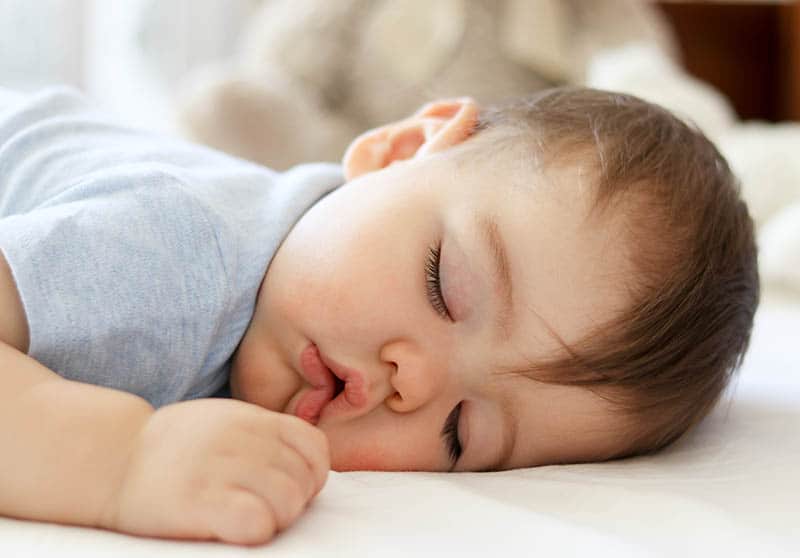
We all know how big of a pain clearing a stuffy nose can be even if you’re capable of using handkerchiefs.
While babies aren’t that developed yet, luckily there are various ways you can solve their problem for them.
The cause of a stubbornly stuffy nose can also come from dehydration.
Your newborn baby might not be getting enough feedings, which allows the mucus to dry up inside the nose, making it a pain to get rid of.
2. A deviated septum

A deviated septum is what would be called “a crooked nose” in simpler terms.
It’s a condition one is either born with, or it’s inherited after suffering some sort of nasal trauma.
It also forms more frequently in babies due to the softness of the cartilage that splits the nose into two nasal pathways down the middle.
It’s not that hard to notice either. It’s quite easy to spot when your child’s nose is off-center. The problem comes in when it’s time to look toward fixing it.
Messing around with any bone/cartilage structure at an early age is only going to invite further complications down the line and, as such, is not recommended until the child is at least 15 years of age.
Until then, she’ll have to live with a deviated septum.
While not the absolute worst thing in the world, it can be quite a nuisance with symptoms including, but not being limited to, having trouble breathing, loud snoring at night, postnasal drip, nosebleeds, and, in more serious cases, sleep apnea.
I myself have had a deviated septum ever since an incident with a dog accidentally smacking my face with his paw a bit too hard that it knocked both my nose and a few of my lower teeth out of whack when I was around 4 years of age.
My teeth were fixed with braces and a removal of one of them that was too far back, and the septum was solved once I could pay for the septoplasty myself since it didn’t cause me too many issues.
The only actual problem was having to inhale twice as hard since one of my nostrils was always plugged while the other had twice the contact surface that needed that extra suction.
3. Sleep Apnea
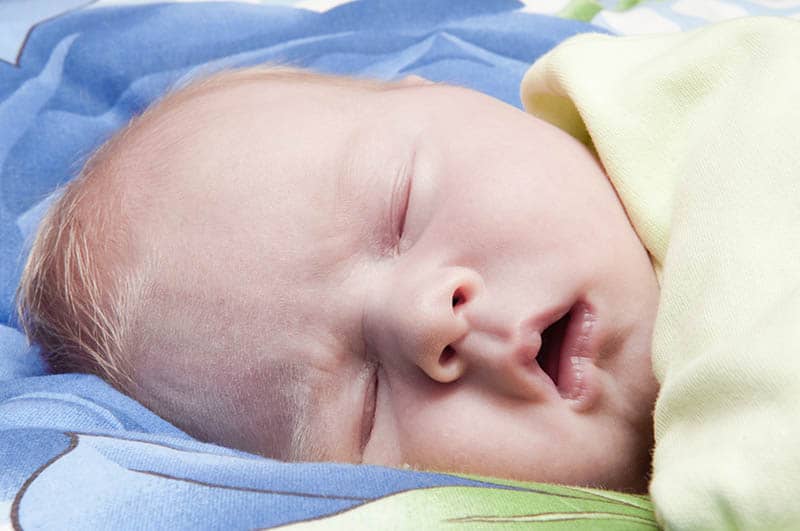
The obstructions of the nasal airflow are usually tonsils and/or adenoids, hence why enlarged tonsils can pose a great number of issues in early childhood and why many children end up getting them surgically removed altogether.
This makes the person either breathe through their mouth or wake up briefly many times throughout the night to catch a small breath of air, leading to a number of issues.
The main ones being hypersomnia (lack of energy during the day), increased irritability, and complications in the later stages in life, like increased risks of heart disease or diabetes – plus sleep deprivation for the affected person and the people in their household in general, which comes as a given.
4. A force of habit
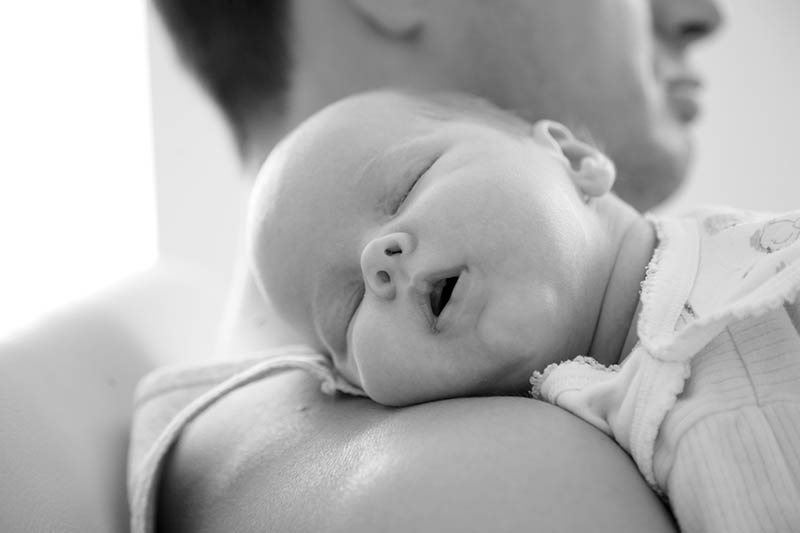
This can be the toughest to get rid of, since there’s no inherent factor that you can remove as easily as you could with all the other cases.
It might become easier when they become older and can understand basic communication, but it’ll still pose a great challenge.
Solutions
1. Get a humidifier
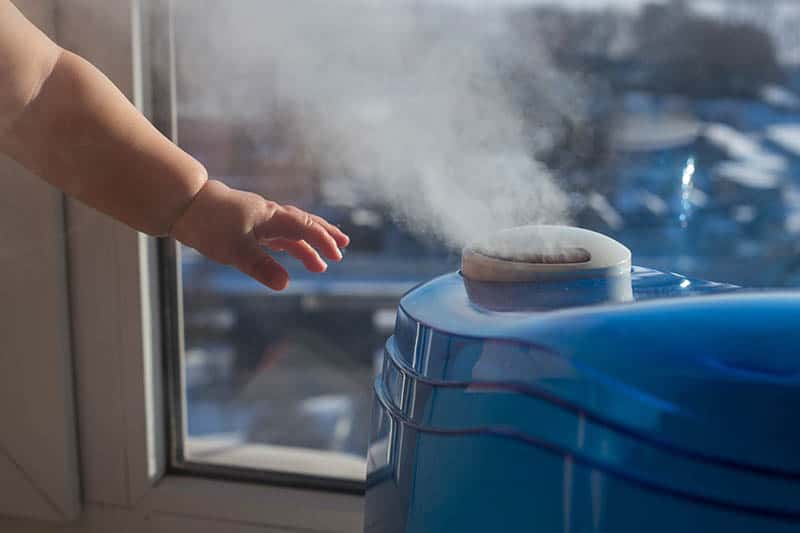
You can even find one that doubles as a diffuser so you can slip some essential oils in for extra benefits, depending on what your child (or you) might be struggling with.
My personal suggestion is to get one that sprays cool bouts of mist to always feel refreshed, but that’s just personal preference.
RELATED: 14 Best Humidifiers For Babies For The Sweetest Dreams
2. Run a hot shower
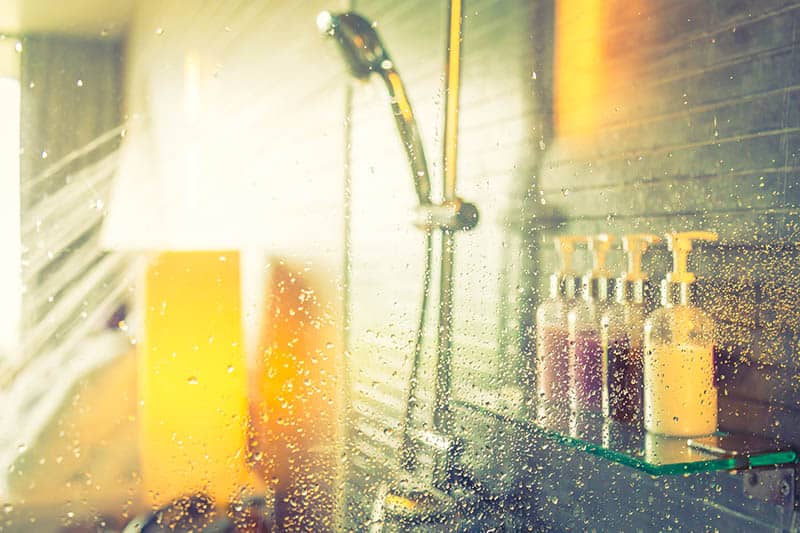
Let the shower run hot water so the steam can rise and clear your baby’s stuffy nose and help them breathe through their nostrils again.
It will be cheaper in the long run, but it does require you to always make trips to the bathroom if you want to maintain the constant effect that a humidifier would.
3. Mix saline solution and put it in a nasal sprayer bottle
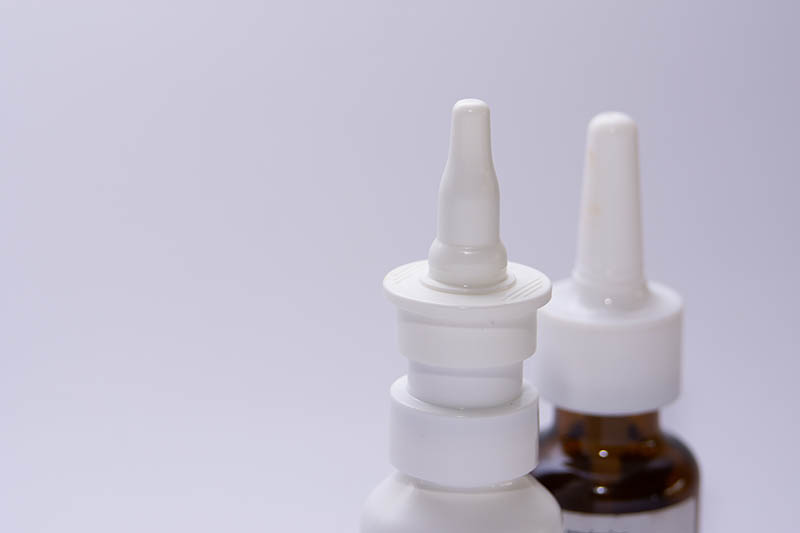
While normally it can be purchased in drug stores just as easily, if you don’t have one nearby, you can just as easily make some yourself.
Just get a cup of pre-boiled or distilled water (you don’t want any bacteria lingering in the water) and mix in half a teaspoon of salt.
Once it’s brought down to room temperature, place it in a sprayer bottle with a small nozzle that you’ve fully cleaned of their old contents, then spray it gently into your baby’s nostril.
That ought to clear those upper airways right up and get your precious child breathing through her nose again.
4. Make sure to keep your baby hydrated

This will help to dissolve the dried snot and mucus right up and help it flow out.
5. Use a bulb syringe / nasal aspirator
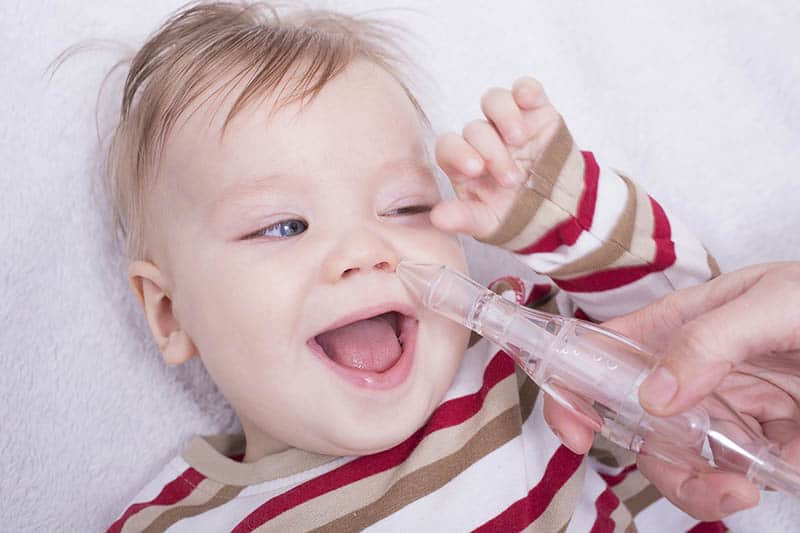
This is still your precious little child’s nose we’re talking about and you doesn’t want to hurt her in the process.
Carefully slide the end of the syringe in, position it properly and then slowly release the bulb pressure so it can suck the mucus in and clear that blocked nose right up.
Don’t forget to wash and disinfect it after each use.
You don’t want it getting crusted up or getting some nasty bacteria on it when you intend to use it at a later date.
6. Consult your pediatrician, family doctor, or ENT specialist

If your baby sleeps with mouth open despite trying all of these other solutions, it’s best to make an appointment with your local pediatrician.
Have them check your child for any nasal irregularities so they can pinpoint the problem affecting your little one.
They should be able to provide you with the best steps to take once the problem has been identified in case it’s some sort of nasal infection, an allergen-induced nasal blockage, or part of a different underlying problem.
The Consequences Of Mouth Breathing
1. Breathing problems

Breathing through the mouth doesn’t actually let people get as much air to the lungs as breathing through the nose does, leading to a lack of oxygen in one’s blood, which makes them get winded a lot easier and feel tired throughout the day in general.
2. More chances of infections

This is due to the much narrower passage filled with tiny nose hairs and said mucus that help catch most of the nasty air particles and prevent them from entering one’s respiratory system. Sadly, the mouth doesn’t have that filter.
3. Dry mouth

Keeping a bottle of water nearby can help alleviate the issue when your baby wakes up, but is not a permanent solution, especially since it leads to a slightly worse issue.
4. More cavity-prone
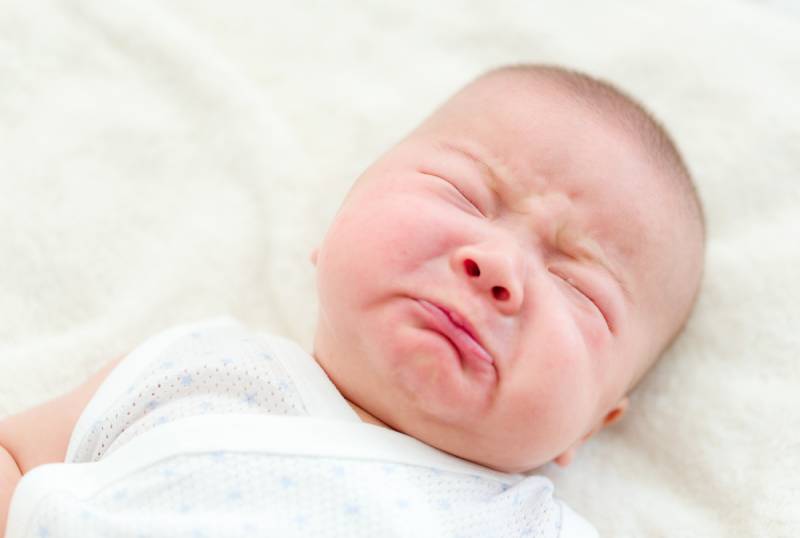
Yes, breathing through the mouth will lead to more bacteria lingering on the teeth. It has little to do with the actual breathing part, but more with the fact that your saliva levels are low and they can’t properly contain it.
This leads into a lot more of it retaining on the teeth, eating away at the protective coating and causing cavities.
Not only that, but due to the increased amount of bacteria in the mouth, her breath starts gaining a rather foul odor a lot quicker, even if she gets to teeth-brushing age.
This also means that your baby’s mouth is a lot more prone to gingivitis, which will only cause her unnecessary pain and discomfort and could potentially become periodontitis – something you’d rather not have your little one have.
Thankfully, the more serious issues can just be resolved with good dental hygiene once your child gets to that stage.
5. Long face syndrome

That’s because children aren’t comfortable sleeping on their backs but rather opt to sleep on their stomachs with their heads to the side.
Due to the softness of their bones at an early stage, this sleeping position leads to a slightly less natural skull development – a more vertical one, to put it in simpler terms, also caused by the person’s lower jaw being lower than intended, making the face develop as more elongated to adapt.
While not inherently disruptive, it may come off as unappealing to some.
If it does become a bother, surgical procedures do exist that can correct the issue, but again, do not put your child under any facial reconstruction surgery until they’re at least 15 years of age.
How To Prevent Mouth Breathing From Becoming A Problem

Pay attention to the way your little one breathes.
If your baby sleeps with mouth open and only breathes through her mouth, get that pediatrician’s appointment sorted to narrow the issue down and resolve it.
It won’t cost much apart from a bit of your attention (which you’re already devoting to your little one) and they’ll have a better life for it in the future.
This way you also get to prevent mouth breathing from becoming a nasty habit that’ll be hard to eliminate should it set in.
Thankfully, none of the issues that arise from your baby sleeping with mouth open are really fatal, outside of sleep apnea on very rare occasions, and no drastic surgery needs to be taken unless your child herself feels the need for it later.
So don’t stress too much about it if you miss a few of the cues, but remain vigilant regardless, mammas.
READ NEXT: Milk Coming Out Of Baby Nose – Why It Happens And What To Do
Like this post? Please share or pin it for later. You can also stay in the loop and follow us on Facebook, Instagram or Pinterest.

This post contains affiliate links. Please see our full disclosure for more info.

